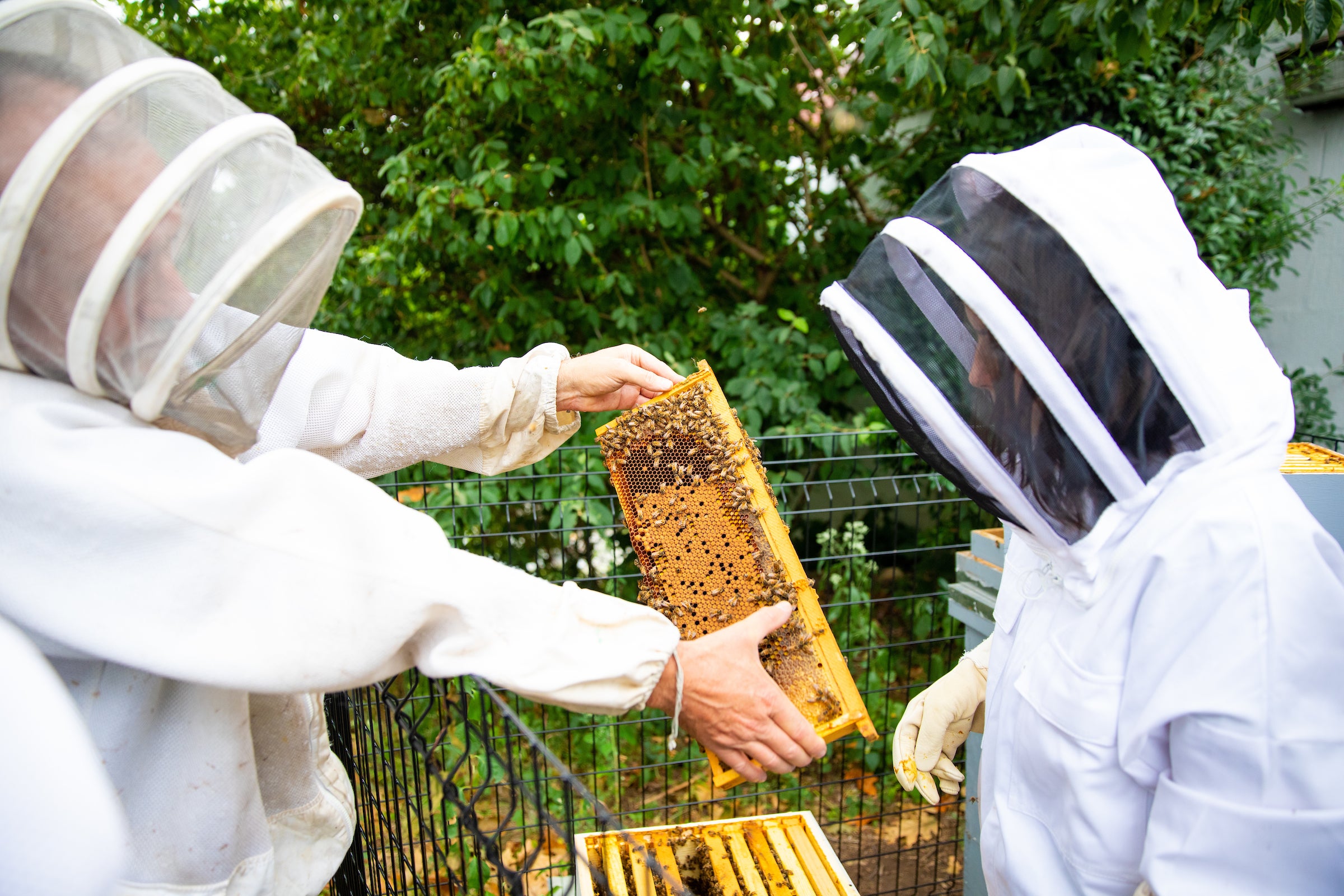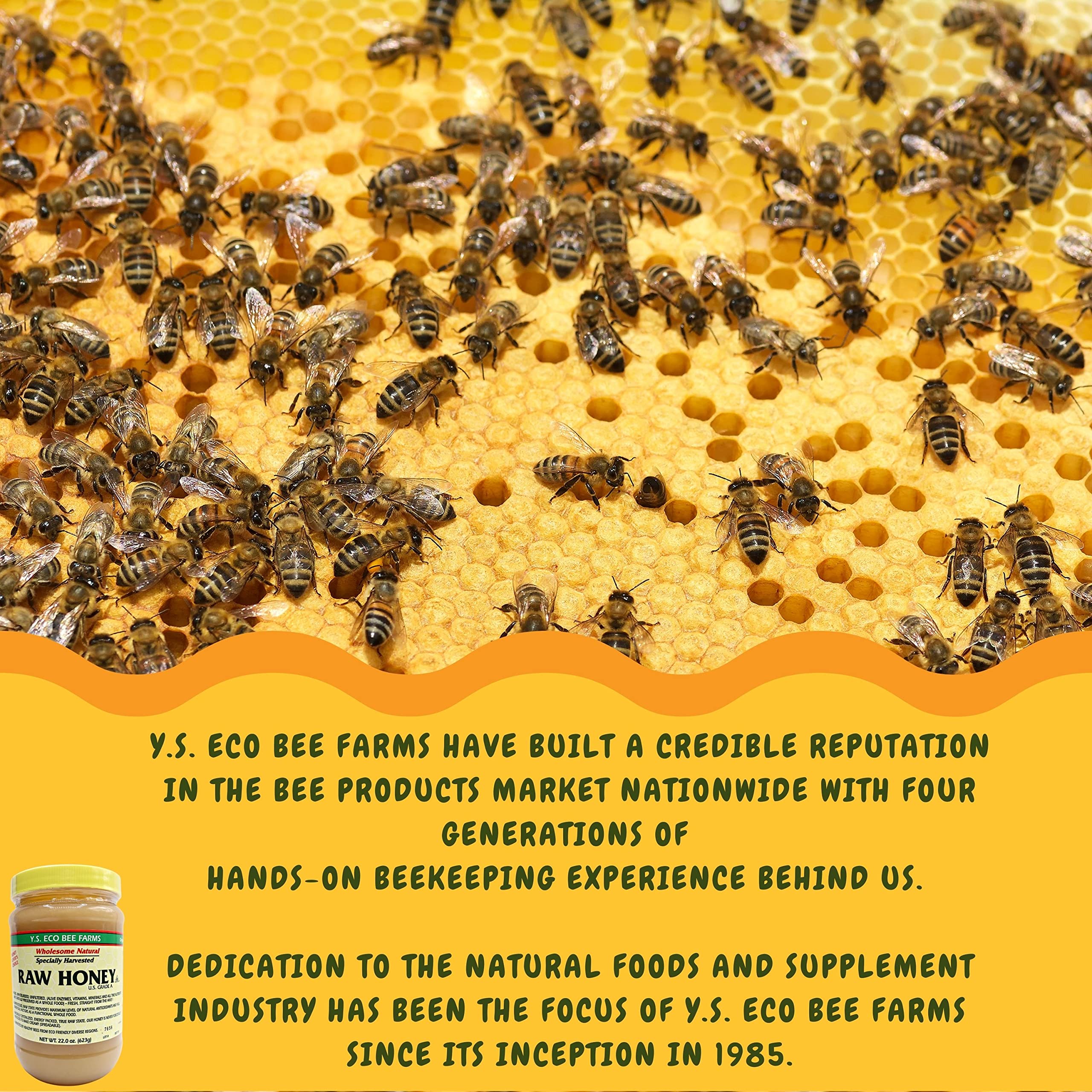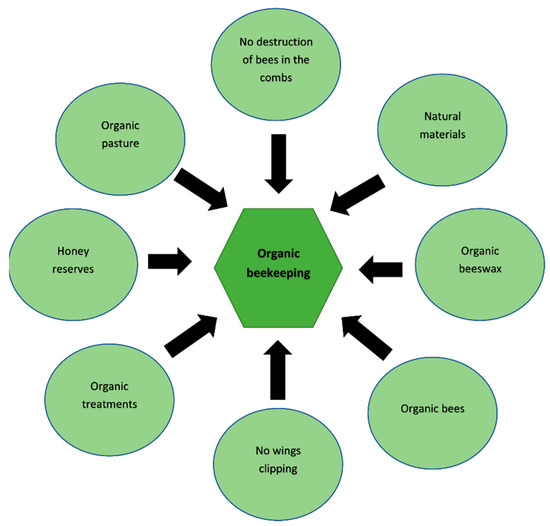Contents
I. Introduction to Beekeeping and Eco-Friendly Marketing

Beekeeping is a centuries-old practice that involves the rearing and management of bees in hives for honey production, pollination, and other beneficial byproducts. In recent years, there has been a growing interest in beekeeping not only for its agricultural benefits but also for its positive impact on the environment. This has paved the way for eco-friendly marketing strategies centered around beekeeping.
The Importance of Bees in Our Ecosystem
Bees play a crucial role in maintaining biodiversity and ecosystem balance through their pollination activities. They are responsible for pollinating a significant portion of flowering plants, including fruits, vegetables, nuts, and seeds. Without bees, many plant species would struggle to reproduce and thrive.
Beyond their role as diligent pollinators, bees also contribute to sustainable agriculture by producing honey and beeswax. These natural products have numerous health benefits and are widely used in various industries such as cosmetics, food production, medicine, and crafts.
The Rise of Eco-Friendly Marketing
Eco-friendly marketing focuses on promoting products or services that are environmentally friendly or sustainably produced. With increasing consumer awareness about climate change and environmental issues, businesses across industries are adopting eco-friendly practices to meet customer demands while reducing their carbon footprint.
In this context, beekeeping presents an excellent opportunity for businesses seeking to engage in eco-friendly marketing initiatives. By incorporating bee-related themes into their branding strategies or supporting local beekeepers through partnerships or sponsorships, companies can align themselves with sustainability goals while making a positive impact on the environment.
Benefits of Beekeeping-Driven Eco-Friendly Marketing
1) Enhanced Brand Image: Associating your brand with eco-friendly practices like beekeeping can significantly improve your brand image and reputation among environmentally conscious consumers. This positive association can lead to increased customer loyalty and advocacy.
2) Increased Sales: Eco-conscious consumers are more likely to support businesses that prioritize sustainability. By incorporating beekeeping-related messaging into your marketing efforts, you can attract this target audience and potentially drive higher sales.
3) Community Engagement: Beekeeping initiatives provide opportunities for businesses to engage with local communities. Supporting local beekeepers or sponsoring educational programs fosters a sense of community involvement, which strengthens relationships with customers and stakeholders.
4) Positive Environmental Impact: Beekeeping helps protect bees, which are essential pollinators for maintaining healthy ecosystems. By promoting sustainable practices and raising awareness about the importance of bees, eco-friendly marketing campaigns contribute directly to environmental conservation efforts.
Beekeeping-driven eco-friendly marketing offers a win-win situation for both businesses and the environment. By embracing sustainable practices while supporting honeybee populations, companies can make a real difference in preserving our planet’s delicate balance while reaping the benefits of enhanced brand reputation and increased customer loyalty.

Beekeeping and Eco-Friendly Marketing
The Benefits of Beekeeping for Eco-Friendly Marketing
Beekeeping has gained popularity in recent years as individuals and businesses recognize its potential benefits not only for honey production but also for eco-friendly marketing. By incorporating beekeeping into their practices, companies can align themselves with sustainability initiatives, support pollinators’ well-being, and enhance their brand image. This article explores the advantages of beekeeping in eco-friendly marketing strategies.
1. Enhancing Sustainability Efforts
Beekeeping is a sustainable practice that promotes biodiversity and ecological balance. Bees play a crucial role in pollinating plants, which contributes to the growth of fruits, vegetables, nuts, and seeds. By engaging in beekeeping activities or supporting local beekeepers, businesses demonstrate their commitment to sustainability and environmental conservation.
2. Supporting Pollinator Health
The decline of honeybee populations worldwide has raised concerns about the future of pollination-dependent agriculture. By keeping bees or investing in beehives placed near agricultural fields, companies actively contribute to preserving pollinator health by providing them with suitable habitats and food sources.
3. Strengthening Brand Image
Incorporating bees into marketing campaigns or adopting honeybee-related branding elements can help businesses improve their brand image by highlighting their commitment to environmental responsibility and sustainability practices. Consumers are increasingly drawn to brands that prioritize eco-friendly initiatives.
4. Creating Educational Opportunities
Beekeeping offers unique educational opportunities for both employees and customers alike. Businesses can organize workshops or training sessions on beekeeping techniques or partner with local organizations to raise awareness about the importance of bees as pollinators.
5. Producing and Promoting Local Honey
One of the direct benefits of beekeeping is the production of honey, a versatile product with various culinary and health applications. By using and promoting locally sourced honey, companies can support local economies while offering customers a sustainable alternative to mass-produced honey.
II. Benefits of Beekeeping for the Environment

Beekeeping not only offers numerous benefits for beekeepers and honey enthusiasts but also provides significant advantages to the environment. Here are some of the key environmental benefits of beekeeping:
Pollination Support
Beekeeping plays a vital role in pollination, as bees are exceptional pollinators. They transfer pollen from male to female flower parts, facilitating plant reproduction and ensuring genetic diversity within plant populations. This process is crucial for maintaining healthy ecosystems and promoting agricultural productivity.
Biodiversity Conservation
By engaging in beekeeping practices, individuals contribute to conserving biodiversity. Bees visit various plants during their foraging trips, aiding in cross-pollination among different species. This activity helps maintain diverse plant populations, which are essential for sustaining wildlife habitats.
Ecosystem Balance
Bees act as keystone species within ecosystems due to their significant role in pollination processes. Through their interactions with plants, they support the growth of vegetation that acts as food and shelter for other organisms such as insects, birds, and mammals. The presence or absence of bees can have profound effects on overall ecosystem balance.
Enhancement of Food Security
The honeybee’s contribution to global food security cannot be understated. By assisting with crop pollination, bees directly impact agricultural productivity by increasing fruit set and yield quantity while improving crop quality through enhanced seed production.
Clean Air Quality
Bee activity contributes indirectly to air quality improvement by promoting healthy vegetation growth through effective pollination services. Healthy plants absorb carbon dioxide from the atmosphere during photosynthesis while releasing oxygen back into it – an essential process that helps combat climate change.
These are just a few of the many environmental benefits associated with beekeeping. By supporting and promoting beekeeping practices, we can actively contribute to the preservation and sustainability of our natural environment while enjoying the delicious rewards that come from honey production.

Beekeeping, also known as apiculture, is not only a fascinating hobby but also an essential practice for the preservation of our ecosystem. As beekeepers, it is crucial to adopt eco-friendly marketing strategies that promote sustainable practices and contribute to the well-being of our planet.
The Benefits of Eco-Friendly Marketing
Implementing eco-friendly marketing initiatives in beekeeping offers numerous advantages. Firstly, it allows us to align our values with conscious consumers who prioritize environmentally friendly products and services. By showcasing our commitment to sustainability through marketing efforts, we can attract like-minded individuals who are more likely to support our endeavors.
In addition, adopting eco-friendly marketing practices helps create a positive brand image while building trust among consumers. When potential customers see that we prioritize environmental responsibility and conservation in our promotional materials, they are more inclined to view us as reputable and reliable beekeepers.
Reducing Environmental Impact
Eco-friendly marketing strategies focus on minimizing the environmental footprint associated with beekeeping activities. One way to achieve this is by using organic methods for pest control instead of relying on harmful chemicals. Promoting these organic practices in our marketing content highlights the health benefits for both bees and consumers.
Furthermore, emphasizing local honey production can reduce carbon emissions caused by long-distance transportation. By targeting local markets through effective digital campaigns or community engagement initiatives, we can create a demand for locally sourced honey while supporting regional economies.
Fostering Education and Awareness
An essential aspect of eco-friendly marketing in beekeeping involves educating consumers about the importance of bees within ecosystems and their role in pollination processes. By providing informative content through blogs or social media posts about how bees contribute to biodiversity conservation, we can raise awareness and foster a deeper understanding of the significance of sustainable beekeeping practices.
Collaboration with Like-Minded Organizations
Partnering with other eco-conscious organizations is an effective way to amplify our marketing efforts. By collaborating with environmental groups or local conservation societies, we can reach a wider audience and create synergistic campaigns that advocate for sustainable beekeeping practices.
III. The Role of Bees in Pollination and Biodiversity
1. Vital pollinators
Bees play a crucial role in the process of pollination, which is essential for the reproduction and survival of various plant species. As they move from flower to flower collecting nectar, bees unintentionally transfer pollen grains from the male part (anther) to the female part (stigma) of flowers. This transfer enables fertilization and subsequent seed formation, ensuring genetic diversity within plant populations.
2. Ecological significance
Pollination performed by bees leads to increased fruit production in many agricultural crops, making them economically valuable for farmers worldwide. Additionally, wild plants also benefit from this ecological service provided by bees as it promotes their reproductive success and helps maintain diverse ecosystems.
3. Biodiversity conservation
The presence of bees contributes significantly to biodiversity conservation efforts. By interacting with various flowering plants across different habitats, bees facilitate cross-pollination between species that would otherwise remain isolated. This interaction promotes gene flow and genetic diversity among plant populations, which is crucial for their long-term resilience against environmental challenges.
4. Indicators of ecosystem health
The health and abundance of bee populations can serve as indicators for overall ecosystem health due to their sensitivity to environmental changes such as habitat loss, pollution, pesticide exposure, and climate change impacts. Declines in bee populations can signify imbalances within ecosystems or potential threats affecting other organisms that depend on these important pollinators.
5. Supporting wildlife habitats
Bee-friendly landscapes not only support honeybee colonies but also provide vital resources for a wide range of other beneficial insects such as butterflies and solitary native bee species. These landscapes include diverse floral resources, suitable nesting sites, and minimal pesticide use. Creating such habitats benefits not only bees but also contributes to the overall conservation of wildlife.
In summary, bees play a critical role in pollination and biodiversity conservation. Their activities as pollinators are essential for the reproduction of numerous plant species, both cultivated and wild. By promoting cross-pollination between plants, bees contribute to genetic diversity within populations and help maintain diverse ecosystems. Furthermore, the health of bee populations can serve as an indicator of ecosystem health in general. Creating bee-friendly habitats supports not only honeybees but also other beneficial insect species, contributing to the conservation of wildlife as a whole.
Remember that protecting bees is crucial for our environment and food production systems. By understanding their significance and advocating for their conservation, we can ensure a sustainable future for both nature and humanity.
Beekeeping has gained significant attention in recent years, not only for its delicious honey production but also for its positive impact on the environment. As more people become conscious of sustainability and eco-friendly practices, beekeeping has emerged as a viable option that aligns with these values. In this article, we will explore the intersection of beekeeping and eco-friendly marketing.
The Importance of Beekeeping
Beekeeping plays a vital role in maintaining biodiversity and preserving our ecosystem. Bees are essential pollinators responsible for fertilizing plants, which leads to increased crop yields and healthier ecosystems overall. Without bees, many plant species would struggle to reproduce effectively.
In addition to their crucial role in pollination, bees produce honey—a natural sweetener loved by many. Honey has numerous health benefits and can be used as an alternative to processed sugars.
Environmental Benefits
Beyond their direct impact on pollination and honey production, keeping bees can contribute significantly to environmental conservation efforts. By providing suitable habitats for bees, beekeepers create sanctuaries that support biodiversity. These habitats often include diverse flora that attract other beneficial insects as well.
Furthermore, beekeepers tend to adopt sustainable practices such as organic farming methods free from harmful pesticides or chemicals. This approach helps maintain a healthy ecosystem while producing high-quality honey.
Eco-Friendly Marketing Opportunities
Eco-conscious consumers are increasingly seeking products that align with their values of sustainability and environmental responsibility. Beekeepers have ample opportunities to market their products using eco-friendly messaging:
- Promoting Local Sourcing: Emphasize the use of local ingredients in your products; highlight the reduced carbon footprint associated with sourcing honey locally.
- Sustainable Packaging: Opt for eco-friendly packaging materials, such as biodegradable or recyclable options, and communicate this commitment to your customers.
- Supporting Pollinator Conservation: Educate consumers about the importance of bees and how their purchase supports beekeeping initiatives that contribute to pollinator conservation.
- Certifications and Labels: Obtain certifications like “Organic” or “Fair Trade,” which demonstrate your dedication to sustainable practices; these labels can enhance consumer trust in your brand.
Beekeepers who effectively integrate these eco-friendly marketing strategies can attract a growing segment of environmentally conscious consumers. By highlighting the positive impact of beekeeping on both the environment and local communities, they can differentiate their products and build a loyal customer base.
IV. Creating Sustainable Practices in Beekeeping
Beekeeping is not just about producing honey; it also plays a crucial role in promoting ecological balance and sustaining our environment. By adopting sustainable practices in beekeeping, we can ensure the longevity of bee populations and contribute to a healthier ecosystem. Here are some key strategies for creating sustainable beekeeping practices:
1. Preserve Natural Habitats
One vital aspect of sustainable beekeeping is preserving natural habitats where bees thrive. This involves protecting and conserving diverse landscapes such as meadows, forests, and wildflower fields that provide ample food sources for bees.
2. Promote Native Plant Species
Encouraging the growth and cultivation of native plant species is essential in sustaining healthy bee colonies. These plants have evolved alongside local pollinators over centuries and provide them with the necessary nutrients they need to survive.
3. Avoid Pesticide Use
Pesticides pose a significant threat to bees’ health by contaminating their food sources or directly affecting their nervous systems. Opting for organic pest control methods or environmentally friendly alternatives helps protect both bees and the wider ecosystem.
4. Practice Integrated Pest Management (IPM)
An effective approach to managing pests while minimizing harm to bees is through Integrated Pest Management (IPM). IPM combines various techniques like biological controls, crop rotation, habitat manipulation, and mechanical pest removal to maintain a balanced ecosystem without relying heavily on chemical pesticides.
5. Provide Water Sources
Besides nectar-rich flowers, honeybees require access to clean water for hydration purposes within their hives’ vicinity. By setting up small water stations with floating objects or shallow containers filled with water, you can help ensure bees have a reliable water source.
6. Employ Hive Management Techniques
Proper hive management techniques are crucial for the well-being of bee colonies. Regular inspections, monitoring for diseases and pests, providing adequate ventilation, and ensuring sufficient food stores during winter months are all essential practices that contribute to sustainable beekeeping.
7. Promote Bee Education and Awareness
Raising awareness about the importance of bees in our ecosystem is vital for their protection. Educating communities about the significance of pollinators and their role in food production fosters a sense of responsibility towards preserving bee habitats and promoting sustainable beekeeping practices.
By implementing these sustainable practices in beekeeping, we can create an environment that supports healthy honeybee populations while safeguarding our planet’s biodiversity. Through responsible stewardship, we can enjoy not only delicious honey but also the benefits of a thriving ecosystem buzzing with life.
Beekeeping plays a vital role in promoting eco-friendly marketing practices. Not only does it support the bee population, but it also has a positive impact on the environment and our overall well-being. Let’s explore some key reasons why beekeeping is crucial for sustainable marketing strategies.
Pollination and Biodiversity
One of the primary benefits of beekeeping is pollination. Bees are natural pollinators, transferring pollen from one plant to another, enabling fertilization and fruit production. This process enhances biodiversity by supporting a wide variety of plants and crops. With more diverse ecosystems, we can maintain a balanced environment that benefits both wildlife and humans.
Organic Farming
Beekeeping goes hand in hand with organic farming practices. By keeping bees near organic farms, farmers can rely on them as efficient pollinators instead of using chemical pesticides or artificial means. This symbiotic relationship ensures healthier crops without harmful chemicals while maintaining ecological balance.
Honey Production
Honey is not only delicious but also has numerous health benefits. Beekeepers produce honey as a byproduct of their bee colonies’ activities, providing us with an all-natural sweetener that can replace processed sugars in many recipes and products. Supporting local honey production contributes to sustainable agriculture practices while reducing our reliance on imported alternatives.
Promotion of Local Economy
Beekeeping supports the local economy by creating job opportunities within communities involved in honey production, hive maintenance, and related industries such as beeswax-based products or apitherapy services (using bee products for therapeutic purposes). By investing in local beekeepers’ initiatives, we contribute to economic growth while fostering self-sufficiency within our communities.
Education and Awareness
Beekeeping can serve as a valuable educational tool, raising awareness about the importance of bees and their impact on the environment. Through beekeeping programs, schools, organizations, and individuals can learn about the essential role bees play in sustaining our ecosystems. This knowledge empowers us to make informed choices that support eco-friendly practices in our daily lives.
V. Incorporating Eco-Friendly Strategies in Beekeeping Operations
Beekeeping is not only a rewarding hobby or business venture but also an opportunity to contribute to environmental sustainability. By implementing eco-friendly strategies in beekeeping operations, beekeepers can play a vital role in conserving the environment and supporting the health of honeybee populations.
1. Organic Beekeeping Practices
One effective way to promote eco-friendliness in beekeeping is by adopting organic practices. This involves avoiding the use of synthetic pesticides, antibiotics, and chemicals that can harm bees and their habitats. Instead, organic beekeepers focus on natural remedies and methods such as integrated pest management (IPM) techniques to manage pests without causing harm.
2. Providing Native Plants
Another way to support eco-friendly beekeeping is by planting native plants around beehives and apiaries. Native plants provide bees with a diverse range of pollen sources, ensuring their nutrition and overall well-being. Additionally, these plants are adapted to local conditions, requiring less water and maintenance compared to exotic species.
3. Conservation of Pollinator Habitats
Beekeepers can actively participate in conserving pollinator habitats by creating or preserving areas where bees can forage for nectar and pollen freely. Setting aside specific sections of land for wildflowers or creating pollinator gardens not only benefits honeybees but also supports other native pollinators like butterflies and solitary bees.
4. Minimizing Carbon Footprint
Eco-friendly beekeepers strive to minimize their carbon footprint by using sustainable practices throughout their operations. This includes using energy-efficient equipment like solar-powered extractors or opting for reusable packaging materials instead of single-use plastic products.
5. Integrated Farming Systems
Integrating beekeeping with other forms of sustainable agriculture can create mutually beneficial relationships. For instance, placing beehives in orchards or organic farms can enhance pollination and increase crop yield while reducing the need for chemical fertilizers and pesticides.
6. Education and Outreach
An essential aspect of eco-friendly beekeeping is educating others about the importance of honeybees and their role as pollinators. Beekeepers can engage in outreach programs, organize workshops, or collaborate with local schools to raise awareness about the significance of bees in maintaining a healthy ecosystem.
By incorporating these eco-friendly strategies into beekeeping operations, we can protect honeybees and contribute to a more sustainable future for our environment. Whether you are an experienced beekeeper or just starting out, embracing these practices will not only benefit your bees but also help safeguard our planet’s biodiversity.

Andrew Boyer is an accomplished individual with a deep-rooted passion for bees and their conservation. Born and raised in a small town in Oregon, Andrew developed an early fascination with nature and the environment. He pursued his education at the prestigious University of Oregon, where he obtained a Bachelor’s degree in Environmental Science with a specialization in Entomology. During his time at university, Andrew conducted extensive research on the behavior and ecological impact of bees, earning him recognition from his peers and professors. His dedication to the field led him to internships at local beekeeping associations, where he honed his skills in hive management and honey production. Andrew’s expertise in beekeeping and his commitment to environmental sustainability make him a valuable asset in the conservation of these vital pollinators.
